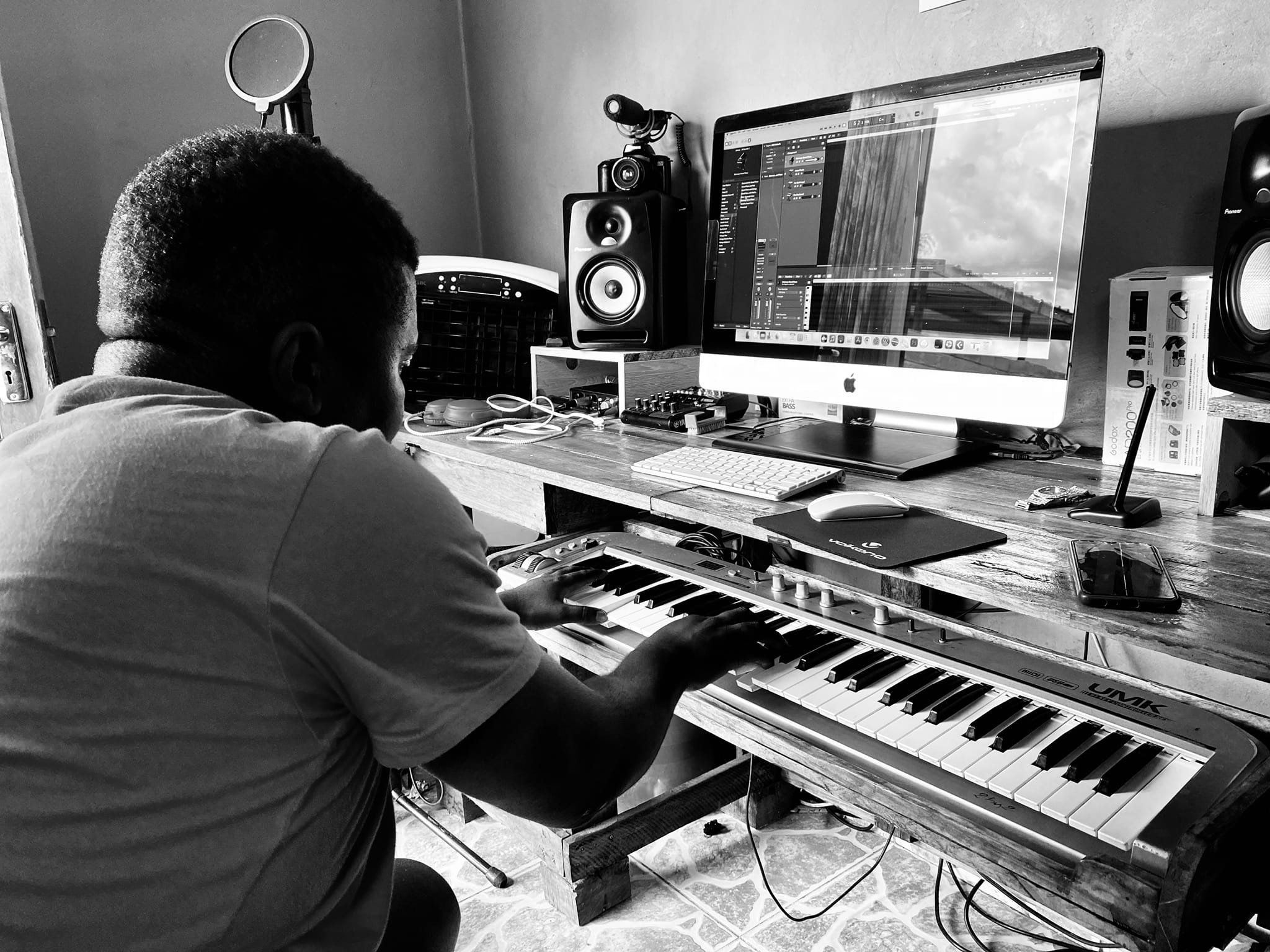Being a successful music producer is the same as being a successful entrepreneur.
But the question begs: Can you make a living from being a music producer?
Those in the craft say it’s a hard knock life for them.
The Weekender chatted with some local producers to hear how they survive.
Andrew on the Beat is a self-taught producer who hails from the Omusati region.
He says his passion for music started when he was at high school, 15 years ago.
He is known for producing songs such as PDK’s ‘Saka’, Top Cheri’s ‘Hangover’, Exit’s ‘Kondjifa’, Tate Buti’s ‘Kala Pwame’,
Ethnix’s ‘Open Up’ and Gazza’s ‘Up All Night’.
Being nominated for best producer years in a row at the former Namibian Annual Music Awards (Namas), Andrew on the Beat says the job of a music producer is to make sure an artist sounds amazing and moves to the beat in the right way.
He says currently it’s difficult for producers to earn the living they deserve as the Namibian music industry is small.
“Artists are getting paid less for shows, which leads to producers getting peanuts. I don’t rely on producing only, as I’m also a businessman,” he says.
SIDE HUSTLES
Andrew on the Beat says he co-owns an entertainment establishment in Windhoek, which assists him financially.
He says he has faced a lot of challenges in acquiring studio equipment with the little he got, as equipment is very expensive.
Young T is a talented young music producer, composer, director and singer who owns UGU Empire in Namibia and Angola.
Having spent most of his time helping different local talents in his studio, he started producing at a young age and, in 2009, added singing to his career.
Young T says doing both is vital, because it opens more doors.
Due to a lack of investment in the local industry, he says he rather invests in global firms.
“As a hustler, I have been diversifying my income sources. I love financial security.
“I have executed a deal with Unicoin, I have a very small investment in Google through LLC light shares, and I have a few small enterprises here and in Angola. My financial security has increased through this,” Young T says.
Kallo On The Beat is a producer from Otjiwarongo, who says he has been committed to the industry for the past 12 to 15 years.
He has won several accolades through his craft.
To make a living in this field, music producers and audio engineers should produce and mix music for artists, work on commercials, films and television shows, offer independent musicians studio services and licence their own music, Kallo on the Beat says.
“My passion for music and creative expression serves as my primary motivation to keep working and earn an income,” he says.
FULFILMENT
He says bringing his artistic vision to life and sharing it with others is incredibly fulfilling.
Additionally, the constant evolution and innovation within the music industry presents him with exciting opportunities for growth and exploration, he says.
“The desire to establish a sustainable career and support myself financially further motivates me to continue working as a music producer, although we are not getting enough,” says Kallo on The Beat.
Elvo Diergaardt, the man behind numerous Namibian hits, and who has shaped the country’s most recognisable musical talents, recently announced his tough times in a daily newspaper.
“People think I’m living a lavish lifestyle because of the work I have done in the past. I just want to be as honest as possible. I used to work for the College of the Arts about three years ago as a part-time lecturer, but got retrenched when Covid-19 hit us,” he told the newspaper.
Diergaardt said after his retrenchment, things went downhill for him.
He said he decided not to suffer in silence and wanted to put an end to the façade that some celebrities put up that all is well.
He called for help as he revealed his dire living conditions.
SUFFERING
Solani Zulu, also known as Glo, is a songwriter, vocalist, and music producer originally from Luanda, Angola, but was raised in Windhoek.
He has previously told The Namibian that being a producer isn’t without its issues.
“We have challenges getting royalties as not all artists give the Namibian Society of Composers and Authors (Nascam) the correct information. Also, we cannot always charge the artists what we actually deserve, as the Namibian music industry is still growing,” he says.
Talking to The Weekender this week, he said the issue of producers finding it difficult to make a living from their craft is a sensitive matter, and he will talk about it more when he is ready to do so.
PROTECTING RIGHTS
Nascam chief executive Albert Nicanor says Nascam’s current mandate is to protect the rights of authors and composers.
“Producers do not benefit from any royalties collected. The producer’s rights are a different type of right, which falls under recording copyright,” he says.
Nicanor, however, says Nascam is working on an action plan for a copyright and related rights protection bill.
He says this bill, if enacted, would ensure producers are remunerated according to their recording rights specifically.
“Producers should gear themselves to align their services in terms of the bill,” Nicanor says.
Stay informed with The Namibian – your source for credible journalism. Get in-depth reporting and opinions for
only N$85 a month. Invest in journalism, invest in democracy –
Subscribe Now!






